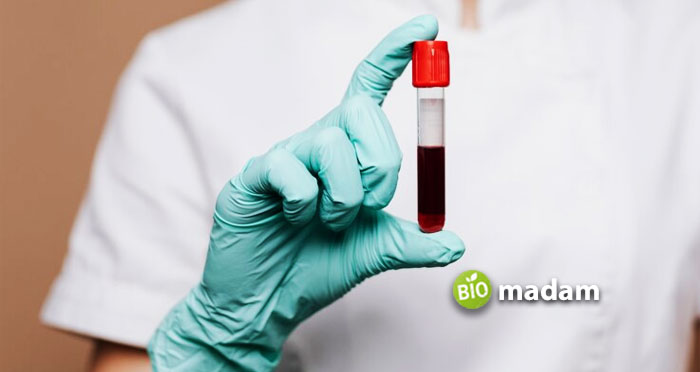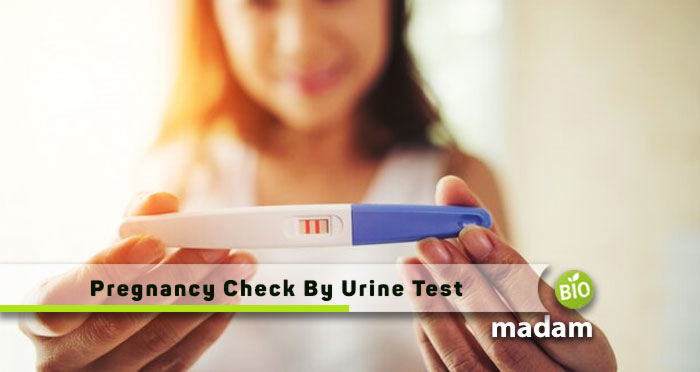Embarking on the path of parenthood often begins with the anticipation of a single, transformative moment—the confirmation of pregnancy. In the realm of home pregnancy tests, timing is of the essence. The question echoing in the minds of those eager to know is, “After how many days can pregnancy be confirmed by a urine test?” Delve into this brief exploration as we navigate the intricacies of when and how the revelation of a new life can be unveiled through the simplicity of a urine test.
How Pregnancy Tests Work
Before understanding when and how to take a urine pregnancy test, it’s crucial to grasp the fundamental mechanism behind these tests. Pregnancy tests work by detecting a hormone called human chorionic gonadotropin (HCG), which the body starts producing when a fertilized egg implants in the uterus. The rapid increase in HCG levels serves as a reliable indicator of pregnancy.
Types of Pregnancy Tests
There are two primary types of pregnancy tests—urine tests and blood tests. While blood tests are conducted in healthcare provider offices and offer higher sensitivity, urine tests, particularly those done at home, are more common. Here’s you can check blood test vs urine test for pregnancy.
Urine Tests
At-Home Pregnancy Tests
- Availability: These tests are widely available over the counter at drugstores, supermarkets, and online, making them easily accessible to individuals.
- User-Friendly: At-home pregnancy tests are specifically designed for ease of use, allowing individuals to perform the test in the privacy of their homes without the need for medical expertise.
- Quick Results: One of the key advantages is the rapid turnaround time, with results typically available within minutes of conducting the test.
- Affordability: At-home pregnancy tests are cost-effective, offering an affordable option for those seeking early pregnancy confirmation.
Urine Tests in Healthcare Provider Offices
- Professional Supervision: Some individuals may choose to have a urine pregnancy test conducted in a healthcare provider’s office, ensuring professional oversight.
- Similar Mechanism: The basic mechanism of detecting HCG in urine is the same as at-home tests, but the process may involve a healthcare professional administering the test.
Blood Tests
Conducted in Healthcare Provider Offices

- Higher Sensitivity: Blood tests generally offer higher sensitivity compared to urine tests, allowing for the detection of lower levels of HCG.
- Quantitative Analysis: Blood tests can provide quantitative data, revealing the exact amount of HCG present in the bloodstream. This can be valuable for tracking HCG levels during the early stages of pregnancy.
Reasons for Blood Tests
- Fertility Treatments: Individuals undergoing fertility treatments may opt for blood tests to closely monitor HCG levels during early pregnancy.
- Potential Pregnancy Complications: In cases where there may be concerns about the viability of the pregnancy, blood tests can offer more detailed information.
HCG Levels and Pregnancy Confirmation
Understanding the role of HCG is pivotal in comprehending how pregnancy is confirmed. HCG production begins shortly after conception and increases rapidly, doubling every few days in the initial weeks of pregnancy. The placenta, a structure unique to pregnant individuals, is responsible for producing HCG. Elevated levels of this hormone unequivocally indicate pregnancy.
When to Do a Urine Test for Pregnancy?
Timing is crucial when it comes to taking a urine pregnancy test. The question often arises – when to do urine test for pregnancy? The answer involves a delicate balance between early detection and waiting for a missed period.
In many cases, home pregnancy tests can yield a positive result as early as 10 days after conception. However, for heightened accuracy, waiting until after a missed period is recommended.
How to Take a Home Pregnancy Test?
The process of taking a home pregnancy test may seem straightforward, but nuances can impact accuracy. Methods include collecting urine in a clean cup and applying drops to a test strip, placing the test strip in the urine stream, or dipping the strip in a cup of urine. It is crucial to follow the instructions meticulously, considering factors like the concentration of HCG in the morning urine.
Interpreting Pregnancy Test Results
Understanding the results of a pregnancy test is equally important. A positive result typically indicates pregnancy, but interpreting faint lines and distinguishing them from evaporation lines is essential. False results, whether negative or positive, can occur due to various factors, such as testing too early or using the test incorrectly.
Advantages of Home Pregnancy Tests
Home pregnancy tests offer several advantages:

- Affordability: Home pregnancy tests are cost-effective, making them accessible to a wide range of individuals.
- Ease of Use: Designed for user-friendliness, these tests can be easily performed at home without the need for specialized medical training.
- Quick Results: Home pregnancy tests provide rapid results, typically within minutes of conducting the test.
- Accessibility: Widely available over the counter, home pregnancy tests can be purchased at drugstores, supermarkets, and online, ensuring easy accessibility.
- Privacy: Conducting a pregnancy test at home offers individuals the privacy and comfort of familiar surroundings.
- Similar Accuracy to Medical Tests: Most home pregnancy tests boast an accuracy rate of 98% to 99% when used correctly, comparable to tests conducted in healthcare provider offices.
- Early Detection: Some home pregnancy tests can detect pregnancy as early as 10 days after conception, providing individuals with the option of early confirmation.
- User Empowerment: Home pregnancy tests empower individuals to take an active role in managing their reproductive health and family planning.
Additional Considerations
Certain medications, such as fertility drugs containing HCG, can impact test results. After receiving a positive pregnancy test result, taking prenatal vitamins with folic acid is recommended. Seeking professional advice promptly and adopting healthy habits, such as abstaining from alcohol and limiting caffeine intake, are crucial steps in the early stages of pregnancy.
Conclusion
The journey of confirming pregnancy through urine tests is an essential aspect of early maternal care. From understanding the role of HCG to timing the test accurately, individuals can empower themselves with knowledge to navigate this pivotal moment. However, it’s important to remember that while home pregnancy tests are reliable tools, consulting with healthcare professionals ensures comprehensive care and guidance throughout the pregnancy journey.

People call me Domonique Smith in Ross! I was always fond of helping people, so opted an MBBS degree to pursue my passion as my career. My major interests fall in dealing with pregnant ladies and helping them in the best of my wills for their comfort. I am further planning to choose Gynecology as my major, so wish me luck!

